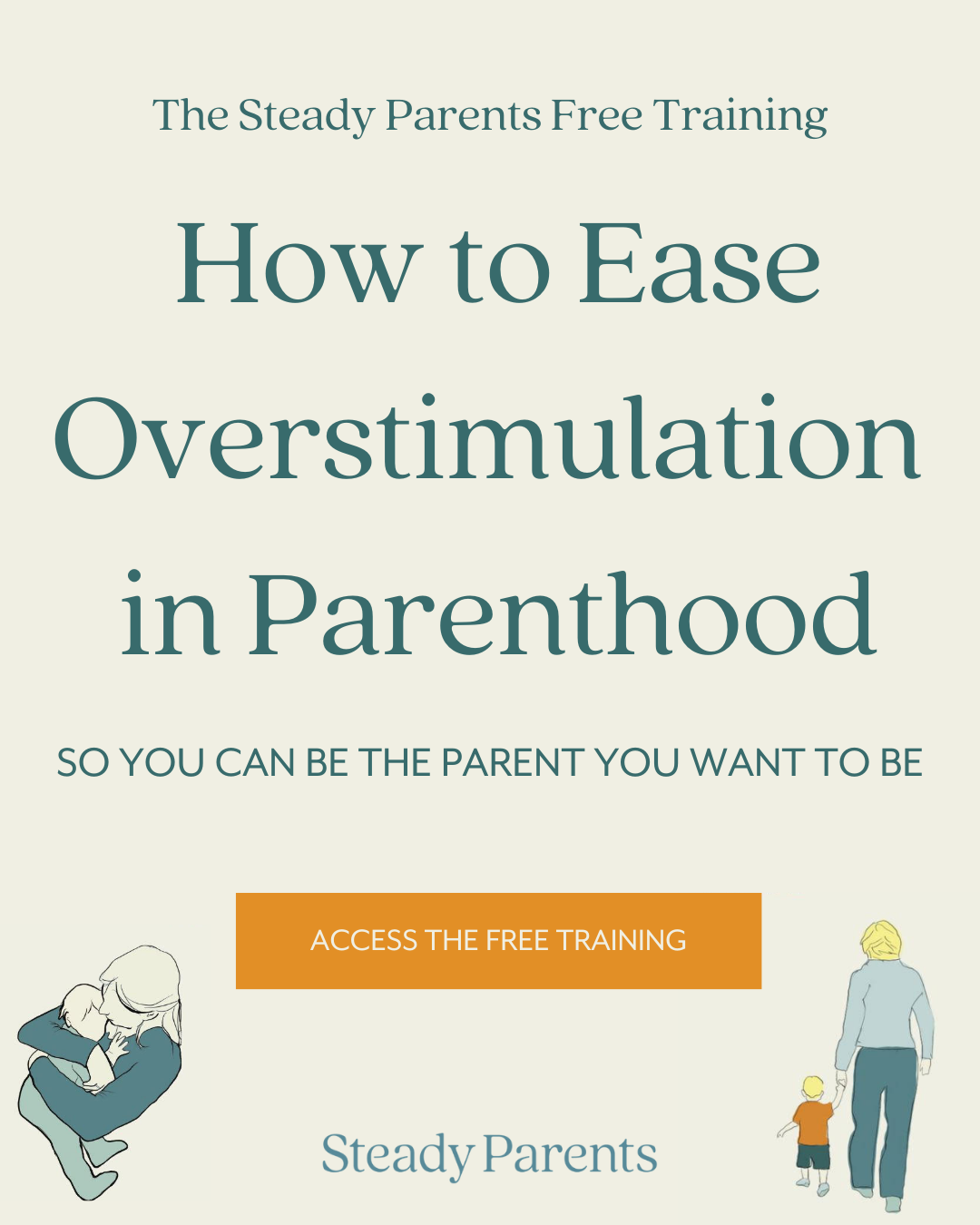Sensitive to Noise? Here is Why it Is So Triggering for Parents
Why Are Parents More Sensitive to Noise?
As a parent, you have an endless list of demands. So many people need something from you.
You're in constant evaluative, protective mode, and not always getting the social connection that can shift you back into safety mode. As parents, we often have to change the way we speak to our young children, and this doesn’t allow for the same mental stimulation we require to have our social needs met.
Part of sensory processing is linked to the limbic system, which is responsible for emotional, reflexive responses.
The sounds of parenthood (along with the regular background noise of life like the humming of your microwave or the whir of a ceiling fan) can make you feel as if there is danger, even when there likely isn’t.
With that mismatch of perceived danger versus actual danger, your nervous system can experience some serious discomfort. So of course you're irritable as an overstimulated mom; nothing about your environment makes sense from a nervous system perspective, but you also rarely give your nervous system the opportunity to reset.
So what is it about noise in particular that is so triggering?
Well, for starters, being triggered by noise is a normal physiological response to that intense amount of input!
You receive information about your environment through sound, and a response is triggered by your auditory system. Your auditory system tells you about the quality and directionality of sound.
A functioning auditory system tells the body what the sound is, where it is located, and if it is a threat. It also involves the ability to filter out background sound and tune into only necessary sound.
The Difference Between Sounds of Safety and Sounds of Danger
There are different types of sound:
ones that give cues of safety such as the sounds of birds chirping outside or friendly chatter at a local coffee shop
ones that give cues of danger such as a loud crash that could indicate a car crash, a lightning strike, or a piece of furniture falling over.
In general, safety sounds would be something within the range of a human voice (mid-frequency ranges), inviting you in for connection.
Danger sounds would be anything in the high or the low frequency ranges. High frequency range can signal to your nervous system that there’s someone or something in distress and you should tune towards it to figure out what is wrong. Low frequency sounds give the signal that there’s a predator nearby and you need to run away.
Here’s the thing - kids are loud. Dogs are loud. Partners are loud (at least mine is…sorry Jon). And no matter how many times we ask them to lower their voice, it just doesn’t make a difference.
But in reality, they may not actually be the sounds that are causing your sensory overload to snowball. Background sounds - like the air conditioner, washing machine, dishwasher, or ceiling fan - can affect your ability to regulate your nervous system.
Low-frequency sounds are an evolutionary sign of danger (think of the low purr of a looming predator nearby!), so having them on in the background keeps your nervous system on high alert.
This makes it much harder to cope with the high-pitched shrills and cries that kids make, and more likely to enter fight/flight mode!
Non-Auditory Factors That Contribute to Overwhelm
It’s possible that all of the noise in your life isn’t the only thing leaving you feeling overwhelmed by sounds. Here are a few examples of other factors to consider:
Not enough regulating movement throughout the day
Feeling touched-out
Poor sleep
Visual overload
Postural Instability (weak core musculature)
Holding tension patterns in our body
Feeling like you’re never going to complete your to-do list
Quick arrhythmic head movements (turning quickly from one child to another)
General anxiety or stress
What to Do When The Noise Sensitivity Kicks In
When you start to notice yourself getting agitated with your kids for being so loud, try searching for background, low-frequency household sounds, and turn those off instead. It gives your nervous system one less thing to filter out and help reduce your sensory overload so you can regulate yourself a bit better, and really look at the situation as it is.
In addition to turning off some of those triggering background noises, here are some of my top in-the-moment strategies to support your nervous system when you’re overwhelmed by sound, along with why they work:
Go outside. An outdoor setting reduces echoes making it easier to filter out and process the sound.You’ll be able to tune in to the natural sounds of the outdoors like the wind, leaves rustling, birds chirping, and the water flowing by which helps reduce cortisol levels and activating the parasympathetic nervous system, known for the “rest and digest” processes.
Tune in to three good sounds. Tuning into the sounds that make you feel safe and comforted shifts your nervous system from defensive to safety. It can be so easy to tune in straight to the "danger" sound, but you can be intentionally more dialed in to the good sounds to support yourself.
Sing or hum to yourself. This simple act increases blood flow to the brain, stimulates the vagus nerve to calm your nervous system, and gives you one loud sound to focus on, blocking out the environmental sounds.
Chew gum and dance it out. Doing either (or both!) of these activities gives you regulating proprioceptive and vestibular (movement) input.
Focus on your feet on the floor. Being mindful and noticing this sensation grounds you into your space and your body. Even better if you can ground yourself outside!
It’s natural for noise to be more triggering for parents because the sound of everyday life can activate our limbic system and bring up feelings of insecurity and fear.
To combat this, we have to bring back the feeling of safety by turning off background noises, tuning into good sounds, and grounding ourselves in the present. It may take a lot of effort, but by making small changes to our environment and to our mindset, we can confront our triggers and take back control.
Noise sensitivity is a normal part of being a parent. Despite the overwhelming amount of input, we don’t have to feel helpless.
By learning to recognize our triggers and shifting our focus to the calming sounds of nature, we can learn to cope with noise and find our way back to safety. As the saying goes, “In the midst of chaos, there is also opportunity.” Let’s find the opportunity to reset, heal, and embrace peace in our lives.
For more on supporting your sensory needs as a parent, including how to get to the root of your auditory overwhelm, check out the Steady Parents Signature Program, Sensing Your Needs in Parenthood.











